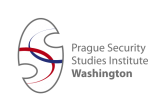Founded in early 2002, the mission of the Prague Security Studies Institute is to help safeguard and strengthen the individual freedoms and democratic institutions of the countries in Central and Eastern Europe. The Institute seeks to illuminate select unconventional threats emanating from authoritarian governments that challenge the transatlantic alliance and other partners globally, especially in the economic & financial and space domains.
PSSI Washington works closely with the Prague Security Studies Institute (PSSI Prague) in the Czech Republic. The two organizations share a common vision for the advancement of allied security interests as described above.
PSSI is dedicated to the education and training of new generations of security-minded students and young professionals, including through its programmatic activities and growing academic network in the Czech Republic and abroad. Accordingly, PSSI Prague operates an array of educational activities for students and young professionals by exposing them to thought-leaders, subject matter experts and senior security policy practitioners from around the globe, brought together for world-class conferences, roundtables, and seminars.
PSSI Prague operates four core programs:
(2) Economic & Financial Statecraft Program
Each program offers a variety of high-level academic and experiential opportunities.
Since 2006, PSSI Prague has maintained a valued partnership with Charles University (continuously operating since 1348), with its co-sponsored Master’s Degree program in International Security Studies (MISS) –a cornerstone of its Security Scholars program.
PSSI also convenes an annual ‘NATO Summer School’ in partnership with NATO’s Public Diplomacy Division and the Czech Foreign Ministry, which is now in its twentieth consecutive year.
Internally, PSSI offers Robinson Martin Security Scholars Academy, a two-semester course on its premises for 15-17 highly qualified students in security studies, bringing in some twenty distinguished lecturers from Europe, the U.S., Japan and several other countries and regions.
